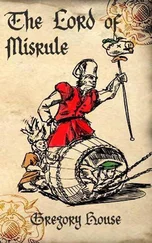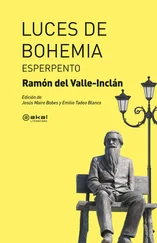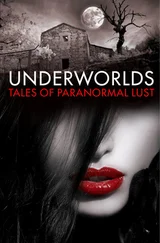Various - Bohemia under Hapsburg Misrule
Здесь есть возможность читать онлайн «Various - Bohemia under Hapsburg Misrule» — ознакомительный отрывок электронной книги совершенно бесплатно, а после прочтения отрывка купить полную версию. В некоторых случаях можно слушать аудио, скачать через торрент в формате fb2 и присутствует краткое содержание. Жанр: История, foreign_edu, на английском языке. Описание произведения, (предисловие) а так же отзывы посетителей доступны на портале библиотеки ЛибКат.
- Название:Bohemia under Hapsburg Misrule
- Автор:
- Жанр:
- Год:неизвестен
- ISBN:нет данных
- Рейтинг книги:4 / 5. Голосов: 1
-
Избранное:Добавить в избранное
- Отзывы:
-
Ваша оценка:
- 80
- 1
- 2
- 3
- 4
- 5
Bohemia under Hapsburg Misrule: краткое содержание, описание и аннотация
Предлагаем к чтению аннотацию, описание, краткое содержание или предисловие (зависит от того, что написал сам автор книги «Bohemia under Hapsburg Misrule»). Если вы не нашли необходимую информацию о книге — напишите в комментариях, мы постараемся отыскать её.
Bohemia under Hapsburg Misrule — читать онлайн ознакомительный отрывок
Ниже представлен текст книги, разбитый по страницам. Система сохранения места последней прочитанной страницы, позволяет с удобством читать онлайн бесплатно книгу «Bohemia under Hapsburg Misrule», без необходимости каждый раз заново искать на чём Вы остановились. Поставьте закладку, и сможете в любой момент перейти на страницу, на которой закончили чтение.
Интервал:
Закладка:
Count Slavata, who himself took no inconsiderable part in this terrible drama of anti-reformation, and who, owing to his religious convictions, cannot be accused of partiality, is authority for the statement that about 36,000 families, including 185 houses of nobility (some of these houses numbered as many as 50 persons each), statesmen, distinguished authors, professors, preachers, – spurning to accept the emperor’s terms, went into exile.
In 1627 Ferdinand promulgated what he designated the “Amended Statute.” The “amendment” really consisted in the abolishment of those ancient rights and liberties of the land which were incompatible with autocratic powers.
Under the “Amended Statute” the kingdom, heretofore free to elect its sovereign, was declared to be an hereditary possession, both in the male and female line, of the Hapsburg family. The three estates – lords, knights, and the cities – which till then constituted the legislative branch of the government, were augmented by a fourth unit, the clergy. The fourth estate was destined to exercise, as subsequent events have shown, the greatest influence on the affairs of the government. The Diet at Prague was divested practically of all its power and initiative; from now on its sole function was to levy and collect taxes. And because the king had invited to the country so many alien nobles (or commoners later ennobled) who were ignorant of the language of the land, the amended statute provided that henceforth the German language should enjoy equal rights with the Bohemian. A disastrous blow to the unity of the Bohemian Crown was further dealt by the annulment of the right of the estates in Bohemia, Moravia, and Silesia to meet at a General Assembly for the purpose of deliberating on matters common to the crown. By this clever stroke the emperor tore asunder the ancient ties of the kingdom. He rightly reasoned that by isolating each of the integral parts of the kingdom he could easier hope to hold in leash the whole of it.
In time the administration of the Bohemian Crown was entrusted to an executive who received the title of Chancellor, and when the kings no longer resided in Prague, having taken up a permanent abode in Vienna, the Chancellory was removed thither, ostensibly on the ground that the Chancellor was required to be near the person of the sovereign. In reality, however, the transfer was a part of a preconceived plan to make Vienna the centre of the empire, from which the Hapsburg “provinces” were to be ruled. Under one pretext or another the Chancellory was being gradually shorn of its powers, until Maria Theresa (1740-1780) abolished it altogether. Henceforth even purely local matters were administered from Vienna direct, and the officials began to style the once proud kingdom a “province of Austria.” During the Thirty Years’ War thousands of villages were destroyed by fire and many of them have never been rebuilt. The population, which before the war was estimated at 3,000,000, was reduced by fire, sword, and pestilence to about 800,000. Fields lay fallow for years for lack of workers to cultivate them. Of the 151,000 farms before the war hardly 50,000 remained. Native nobility was reduced to beggary by the confiscation of their estates, and the peasantry that survived was reduced by alien lords to a degrading condition of serfdom. Between 1621 and 1630 400 Prague citizens went into exile. The Nové Město (one of the Prague quarters) alone had at one time 500 vacant houses. The town of Žatec, which in 1618 had 460 citizens, counted ten years later 205 of them. In Kutná Hora, of a total of 600 houses, 200 remained without owners or tenants. The population of the city of Olomouc in Moravia, by 1640, was reduced from 30,000 to 1,670. Wherever the armies marched nothing was seen but waste and ruins. According to notes taken by Swedish soldiers, 138 cities and 2,171 villages were totally ravaged by fire. The textile industry, which had been the source of the wealth of the country, was almost wholly destroyed by the war.
The defeat at White Mountain could not have been productive of such disastrous consequences had it not been for the fact that the nobles were the standard-bearers of Bohemian nationalism and the sole representatives of the nation’s culture and traditions. The peasantry in those days and for a long time afterward was yet helplessly dependent on the aristocracy.
Bohemian Huguenots were scattered over every land in Central Europe, most of them seeking refuge in nearby Saxony, Silesia, Hungary, and Poland. Many emigrated to more distant lands, such as Sweden, serving in the army of Gustavus Adolphus, Russia, Holland, England. A few of the more adventurous spirits wandered off with the English and the Dutch to America. One of them, Augustine Herman, a noted figure among the early Dutch in New Amsterdam, made an attempt to establish a colony of compatriots on a grant of land that he had received from Lord Baltimore and which he named in honor of his native land, Bohemia Manor, a place famous in early Maryland history. Numerous exiles settled in the first half of the seventeenth century in Virginia. In the beginning the exiles hoped to be permitted to return home, but the terms of the Peace of Westphalia (1648) made such a return definitely impossible. They repeatedly called for help. Oliver Cromwell, it is said, had a project under consideration whereby Bohemian exiles were to be settled in Ireland. John Amos Comenius, the bishop of the Bohemian Church, a distinguished educator, himself an exile living in Holland, presented the history of his church to King Charles II. of England in 1660, with a stirring account of its suffering.
Suspecting that the dissenters were yet unsuppressed, the government caused other patents to be issued, one of which, published in 1650, imposed severe penalties such as the billeting of troops, banishment from the country, confiscation of property and, in extreme cases, death. A patent dated April 9th of that year required that within six weeks all parishes should instal conformist clergy or close. Under Josef I. (1705-1711), and again under Charles VI. (1711-1740), the work of anti-reformation was renewed with increased severity. Loyal subjects were enjoined under pain of death from harboring or aiding heretic teachers or ministers, the reading and smuggling into the country or otherwise circulating Bohemian books on the prohibited list. Other patents followed in 1721, 1722, 1723, 1724, 1725, 1726, with the result that non-Catholics who still secretly clung to the forbidden faith emigrated to Saxony and Prussia, where they sought the protection of the rulers of those countries. The suffering of the unfortunates was somewhat, though not wholly, relieved when the German princes, assembled in the Diet at Regensburg in 1735, sent a strong appeal to the Austrian Emperor to treat his subjects with more toleration. When the Edict of Toleration was issued in 1781, permitting free worship, there still remained in Bohemia about 100,000 Protestants. 6 6 However, the Patent of Tolerance extended only to Protestants of the Helvetian and Augsburg Confessions, not to the Bohemian Church, which latter had been denied recognition.
Of the refugees who fled to Germany in the first quarter of the eighteenth century many found their way with the Herrnhuters, or Moravians, as they are called in the United States, to Georgia, and others to Pennsylvania, where they established, in 1741, the flourishing town of Bethlehem, now the recognized centre of the Moravian Church in the United States. 7 7 On February 9, 1748, a bill was introduced in the English Parliament “to relieve the United Brethren (so-called in Comenius’ time), or Moravians, from military duties and taking oaths.” Among the speakers was General Oglethorpe, who spoke in support of the bill. “In the year 1683 a most pathetic account of these brethren was published by order of Archbishop Sancroft and Bishop Compton,” said Oglethorpe. “They also addressed the Church of England in the year 1715, being reduced to a very low ebb in Poland, and his late Majesty, George I., by the recommendation of the late Archbishop Wake, gave orders in council for the relief of these Reformed Episcopal Churches, and letters patent for their support were issued soon after. But since 1724 circumstances have altered for the better, and they have wonderfully revived, increased and spread in several countries. They have even made some settlements in America. In the province of Pennsylvania they have about 800 people to whom the proprietor and Governor gave very good character.”
Интервал:
Закладка:
Похожие книги на «Bohemia under Hapsburg Misrule»
Представляем Вашему вниманию похожие книги на «Bohemia under Hapsburg Misrule» списком для выбора. Мы отобрали схожую по названию и смыслу литературу в надежде предоставить читателям больше вариантов отыскать новые, интересные, ещё непрочитанные произведения.
Обсуждение, отзывы о книге «Bohemia under Hapsburg Misrule» и просто собственные мнения читателей. Оставьте ваши комментарии, напишите, что Вы думаете о произведении, его смысле или главных героях. Укажите что конкретно понравилось, а что нет, и почему Вы так считаете.












